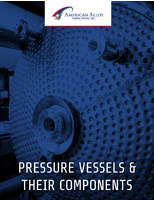Improve Storage I/O Performance and Efficiency in a Flash
Share:
Think Differently About Flash/SSD to Improve Virtualized Computing I/O Performance and Efficiency
SAN JOSE, Calif. - As more companies turn to virtualization for the promised cost saving of server consolidation, they run up against a common problem: I/O bottlenecks that limit virtual machine density and restrict I/O-intensive applications from being deployed on virtual machines. At the same time Flash technology has gained critical mass in a variety of formats and interface configurations to address traditional hard disk performance shortcomings. Deploying Flash technology to solve the I/O quandary for virtualized environments can produce vastly improved performance and efficiency, but only when companies start thinking about storage in a new way, according to IO Turbine, Inc., developer of the first software to intelligently use Flash technology to solve I/O bottleneck problems in VMware environments.
Optimizing performance for virtualized environments requires a reimagining of Flash technology in an emerging memory-to-storage architecture that leverages flash at a higher point in the memory hierarchy to prevent IOPS spikes caused by virtual machines and reducing the I/O latency imposed by network-based Flash storage solutions.
Implementing IO Turbine's new Flash technology-based architecture separates IOPS from disk capacity by continuing to use conventional primary disk storage for data management and utilizing Flash technology deployed on a PCIe card or Solid State Disk on the compute server to optimize IOPS and performance. This configuration avoids the latency problems of staging Flash technology as a SAN- or NAS-based appliance or storage array and eliminates the delays, cost and complexity of network storage. By installing Flash/SSD storage on the host server, it can then be configured between the server and the hypervisor. This configuration serves two purposes: it enables IOPS to be serviced directly from within the host and leverages technology that intercepts all requests to network-based hard disk storage, dynamically redirecting only the most frequently accessed data to ensure maximum application performance and maximum efficiency in utilizing Flash technology.
There is another important element to dynamic caching for Flash technology. With virtual machines frequently spun up or taken down, Flash technology capacity that is allocated to a specific VM is wasted when that VM is taken off line. This also precludes using vMotion in VMware environments to move live virtual machines across physical servers for load balancing, maintenance or high availability without interrupting application access. Dynamic caching alleviates this problem by actively allocating flash to the most I/O-intensive data across all VMs and reclaiming any captive Flash technology capacity when a VM is taken off line.
Moving the I/O to server-based Flash technology also creates improved efficiency for the entire virtual infrastructure. Servers are no longer constrained by I/O limitations, allowing increased CPU utilization with more virtual machines running on a physical host. An IT department no longer needs to overprovision mass storage in a search for more performance boost, meaning fewer hard disks to purchase, provision, power and manage. This new model is also highly efficient in using Flash technology, leveraging dynamic caching to operate it at almost 100 percent utilization.
About Accelio Software
IO Turbine's Accelio works similar to the way VMware, HyperV, and Xen virtualize CPU and memory resources and dynamically provisions I/O throughput and Flash/SSD storage as a cache across multiple VMs, thus accelerating performance of I/O-intensive applications in virtualized environments.
After a simple installation, Accelio runs in the background as a component in the hypervisor and in the guest operating system. By tightly coupling with the file system I/O routines in the guest OS, I/O patterns are transparently redirected so Flash storage is shared across all hosted VMs. For optimal use of resources, Accelio dynamically rebalances I/O as VMs come and go, supports vMotion and the movement of VMs from host to host.
Because it is transparent, no configuration changes are needed in the guest OS and adjustments can be made on the fly with no downtime. The system administrator can refine how Flash storage will be shared per VM and within a VM, assigning priority to the virtualized applications that need it, from the volume to the individual file level. By offloading IOPs from primary storage, both storage and applications run faster and more efficiently.
About IO Turbine
IO Turbine has developed a unique software solution for the biggest problem in virtualized computing - performance. Thanks to the most experienced and successful technical and executive management talent, IO Turbine products deliver and manage the necessary performance to make virtualization work effectively with an increasing number of workloads. The company, founded in December 2009 by Silicon Valley veterans Rich Boberg and Vikram Joshi, is backed by top venture capital firms Lightspeed Venture Partners and Merus Capital. IO Turbine, Inc. headquarters are in San Jose, CA. For more information please see www.ioturbine.com.
IO Turbine and Accelio are trademarks of IO Turbine, Inc. All others are trademarks or trade names of their respective owners.




